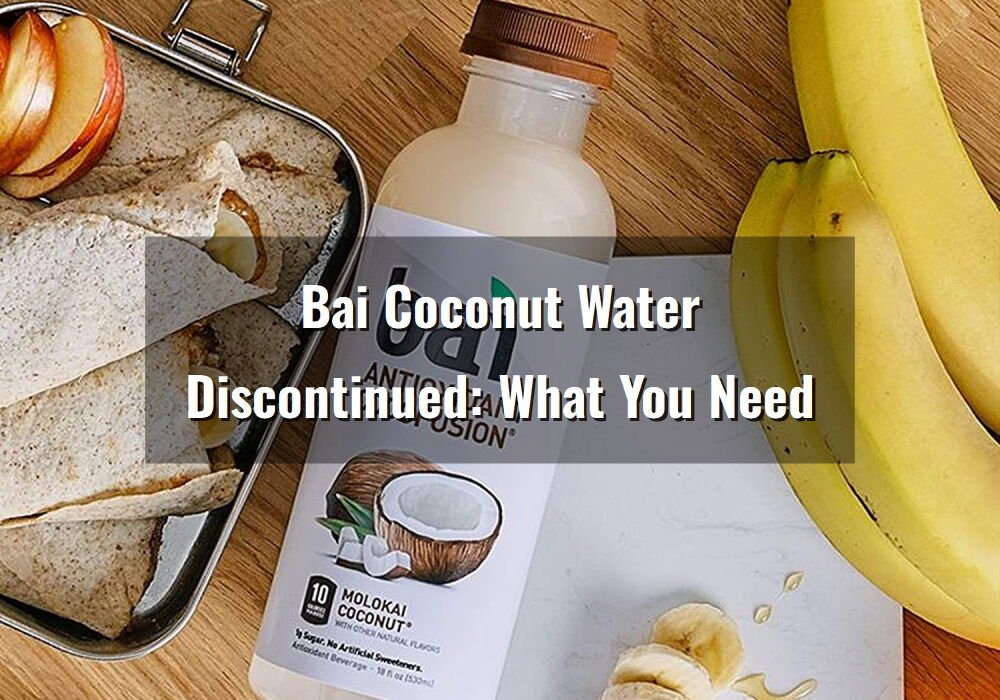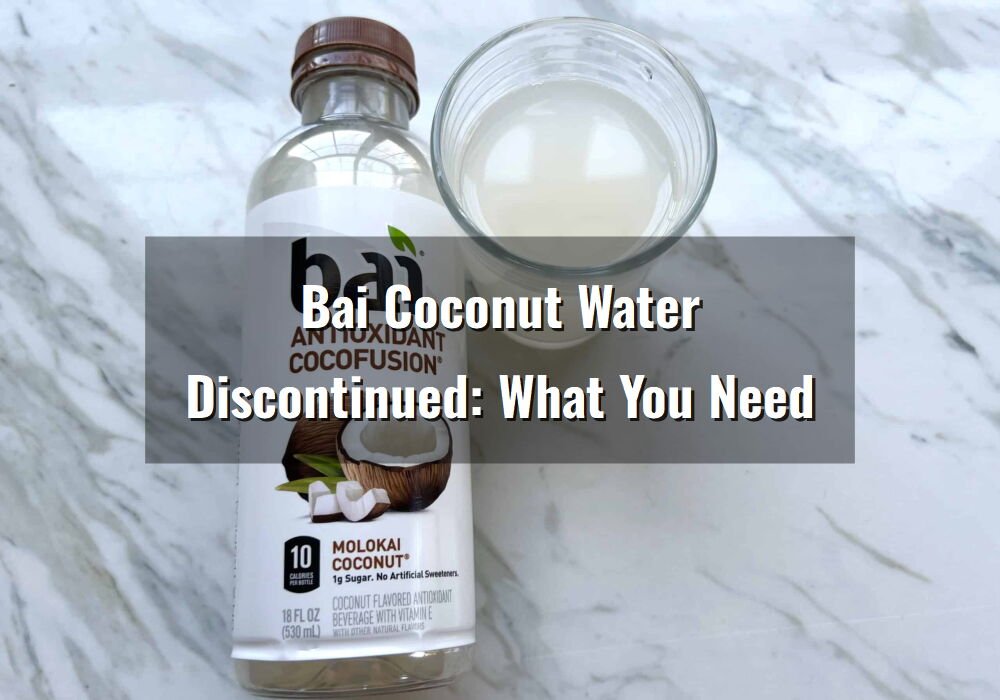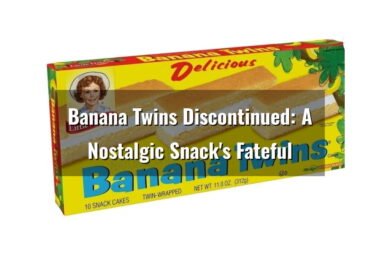Key Takeaways
- Not Fully Discontinued: Despite widespread rumors, Bai Coconut Water remains available on major retail platforms.
- Flavor Availability: While the flagship Molokai Coconut flavor is widely stocked, some varieties like Andes Coconut Lime have seen limited availability.
- Reformulation Impact: Changes from erythritol to monkfruit extract in the recipe have led to mixed customer reactions, sparking perceptions that the original formula is gone.
- Regional Variations: Distribution and stock issues in certain regions have contributed to discontinuation rumors, even though the product is still produced.
- Brand Evolution: Bai’s history of product updates and reformulations has influenced consumer perceptions, making it seem like some flavors are no longer around.
Referenced Links
- Amazon Molokai Coconut Listing
- Target Molokai Coconut Product Page
- Drinkbai Molokai Coconut Page
- BevNET Bai Original Line Discontinuation
- Tasting Table Bai Coconut Water Review
Current Availability and Retail Presence
Bai Coconut Water has long been a popular healthy, tasty hydration alternative. Despite speculations and customer fears over its withdrawal, the product remains popular. The Molokai Coconut flavor is still available on Amazon, Target, and Walmart’s websites.
Customers love that Bai offers same-day pickup and delivery in some areas, making it accessible to aficionados. Online evaluations from early 2025 show that Bai Coconut Water is still in circulation, even though some tastes may be out of stock.
This regular availability, especially in the US, reassures dedicated customers that the brand will continue to offer its distinctive coconut water concentrate and other natural ingredients.
Discontinuation Rumors and Specific Flavors
Rumors about Bai Coconut Water being discontinued appear to be more about certain flavors or formulations rather than an overall withdrawal of the product from the market.
Limited Stock of Andes Coconut Lime
Many consumers have voiced concerns about the Andes Coconut Lime flavor, noting that it is often “rarely in stock” on platforms like Amazon. Such feedback has led some to mistakenly believe that this particular flavor has been permanently discontinued. However, the evidence suggests that these are likely temporary stock shortages or region-specific supply issues rather than a complete phase-out.
The Steady Presence of Molokai Coconut
In contrast, the Molokai Coconut flavor stands as a cornerstone of the Bai Coconut Water lineup. It is consistently available across various online retailers, and its robust presence is a testament to its popularity. This flavor’s widespread availability underscores the fact that Bai is still actively producing its coconut water beverages.
Historical Context and Consumer Memory
Bai’s past decisions, such as the transition from its original line to the Bai5 series, have left a lasting impression on some customers. These historical shifts sometimes resurface in discussions, further muddying the waters for consumers trying to decipher whether current availability issues are a sign of permanent discontinuation or just another evolution in the product’s lifecycle.
Reformulation and Customer Reactions
One of the more contentious aspects fueling discontinuation rumors is the reformulation of Bai Coconut Water.
Shifting from Erythritol to Monkfruit Extract
Traditionally, Bai’s formula included erythritol—a sweetener that some consumers had grown fond of. In a bid to perhaps enhance the health profile or adjust to evolving market trends, the company replaced erythritol with monkfruit extract. This seemingly small change has had a significant impact on the flavor profile of the beverage.
Mixed Reviews and Consumer Sentiment
The reformulation has polarized the customer base. On one hand, some consumers appreciate the new recipe for its potential health benefits and a different taste experience. On the other hand, there are long-time fans who lament the loss of the original flavor, feeling that the change has diluted the essence of what made Bai Coconut Water special for them.
User reviews on platforms like Walmart have documented this split in opinion. While some users express excitement over the “new and improved” formula, others are disappointed, with a few even stating they will no longer purchase the product. Such mixed reactions have contributed significantly to the narrative that Bai has discontinued the product—even though the beverage is still on the shelves.
The Ripple Effect on Perception
It’s important to understand that product reformulations can have a ripple effect. When a company alters a beloved formula, the resulting shift in taste can lead to a perception of discontinuation among those who prefer the original. This case with Bai Coconut Water illustrates how even subtle changes can lead to larger debates about product availability and continuity.
Regional and Stock Considerations
Regional disparities in product availability add another layer of complexity to the discontinuation narrative.
Distribution Challenges Across Regions
While Bai Coconut Water is readily available in the United States, reports from international markets suggest a different story. Some consumers in countries like Thailand have expressed difficulty finding the product in local stores. Such regional variations are not uncommon in the beverage industry, where distribution channels and stock management can differ greatly from one market to another.
Temporary Stock Fluctuations
Even in well-supplied regions, temporary shortages can occur due to factors like seasonal demand spikes, promotional events, or supply chain hiccups. These fluctuations often lead to misconceptions among consumers that a product has been discontinued, when in reality, it is simply a matter of timing and local inventory levels.
How Regional Differences Fuel Rumors
For many, the inability to locate a product locally can quickly be interpreted as the product being permanently withdrawn. This misunderstanding is compounded by the fact that online reviews and social media posts often amplify these regional issues, turning isolated incidents into broader discontinuation rumors.

Comparative Analysis with Other Brands
Bai Coconut Water occupies a unique position in the beverage market, particularly when compared to traditional, pure coconut water brands.
Flavored Versus Pure Coconut Water
Bai’s Cocofusions range mixes coconut water concentrate with flavorings, unlike Vita Coco and ZICO. This unique method targets people seeking taste and health benefits. However, some users may confuse Bai’s formulation and availability with pure coconut water.
Market Competition and Consumer Expectations
The coconut water market is competitive, and each brand’s USP affects consumer perception. Bai’s flavor and formulation adjustments keep the product fresh and intriguing, but often alienate fans of the original recipe. Markets where consumer preferences change quickly require brands to blend tradition and innovation.
Consumer Loyalty in a Shifting Market
Competitive pressure requires brands to change to stay relevant. Bai has changed over time, reflecting beverage industry trends toward reformulations and limited editions to keep consumers interested. This can cause uncertainty and mixed reactions, but it also shows the brand’s commitment to innovation, even if it’s not generally accepted.
Detailed Product Information
To clearly outline what Bai Coconut Water offers, here is a detailed table summarizing the key attributes of its various flavors:
| Flavor | Calories per Serving | Sugar (g) | Key Ingredients | Availability Status |
|---|---|---|---|---|
| Molokai Coconut | 10 | 1 | Coconut water concentrate, stevia, monkfruit extract | Widely available, U.S. focus |
| Puna Coconut Pineapple | 10 | 1 | Coconut water concentrate, natural flavors | Available, less common |
| Madagascar Coconut Mango | 10 | 1 | Coconut water concentrate, antioxidants | Available, part of variety packs |
| Andes Coconut Lime | 10 | 1 | Coconut water concentrate, lime flavors | Limited stock, regional issues |
As the table illustrates, while all flavors share a similar nutritional profile—with only 10 calories and 1 gram of sugar per serving—their availability and consumer reception differ markedly. The Molokai Coconut flavor consistently outperforms its counterparts in terms of stock and popularity, reinforcing its status as the brand’s flagship product.
This detailed snapshot provides clarity for consumers, making it easier to understand which options might be more reliably found at your local retailer and which might require a bit more patience or an online search.
Conclusion and Recommendations
The current state of Bai Coconut Water can best be described as a product undergoing evolution rather than one that is being discontinued outright. Although certain flavors like Andes Coconut Lime are facing challenges in distribution, the overall brand remains active, and key products like Molokai Coconut continue to enjoy robust market presence.
Final Thoughts
If you’re a devoted fan of Bai Coconut Water, especially if you’ve come to love the distinctive taste of Molokai Coconut, there’s no need to worry. The product is still available for purchase through multiple channels, and its presence on popular retail websites is a strong indicator that the beverage is here to stay. However, if you prefer the original formulation or are a fan of less commonly stocked flavors, you might find it worthwhile to check availability regularly or even reach out to Bai’s customer service for more detailed information.
Recommendations for Consumers
- Stay Informed: Regularly check online marketplaces like Amazon, Target, and Walmart for updated stock information.
- Reach Out Locally: If you’re in a region where Bai Coconut Water is harder to find, consider contacting local grocery stores or Bai customer care to inquire about future availability.
- Explore Alternatives: While Bai offers a unique flavor experience, the market is full of alternative coconut-based beverages that might better suit your taste if you’re not satisfied with the current offerings.
- Voice Your Feedback: Customer feedback plays a crucial role in how brands evolve. If you have concerns or preferences regarding the new formula, sharing your thoughts can help shape future product developments.
In a nutshell, the rumors of discontinuation largely stem from regional stock issues and the significant reformulation that has altered the taste profile of the beverage. Bai Coconut Water, with its evolving lineup and innovative approach to flavoring, continues to be a favorite for many health-conscious consumers. The brand’s ability to adapt while maintaining a core product that resonates with a broad audience is a testament to its enduring appeal in a competitive market.
FAQ
Is Bai Coconut Water completely discontinued?
No, Bai Coconut Water is not completely discontinued. While certain flavors like Andes Coconut Lime might be facing temporary stock or regional availability issues, the flagship Molokai Coconut flavor remains widely available through major retailers.
What are the differences between the original and the new formulas?
The original formula featured erythritol as a sweetener, which has now been replaced with monkfruit extract in the current formulation. This change has led to mixed reviews among consumers, with some missing the original taste while others appreciate the new version.
Why are some flavors harder to find than others?
Some flavors, such as Andes Coconut Lime, have experienced limited availability due to regional distribution challenges and temporary stock fluctuations. These issues can create the impression of permanent discontinuation even though the product is still in production.
How can I check the availability of Bai Coconut Water in my area?
The most reliable way to check availability is by visiting reputable online retailers like Amazon, Target, or Walmart. Additionally, contacting local stores or reaching out to Bai’s customer care can provide more localized and up-to-date information.
What should I do if I prefer the original taste of Bai Coconut Water?
If you prefer the original formulation, consider providing feedback directly to Bai through their customer service channels. You might also explore purchasing from sellers who still stock older batches, but be aware that the trend indicates a shift toward the new formulation over time.




